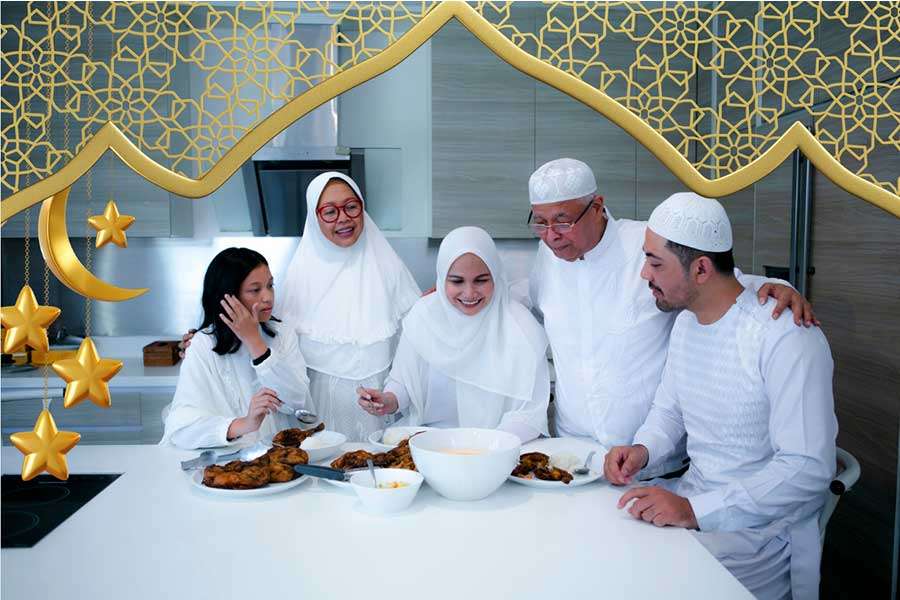Oleh: Dhania Puspa Purbasari

Ramadan, a period that millions of Muslims around the world look forward to, is more than just a change in the calendar. It is a time when souls are purified, relationships with the Creator are deepened, and sacrifice becomes part of everyday life. In the stillness of the night and the patience of the day, the month of Ramadan brightens the way for Muslims to approach Allah SWT with mindfulness and diligence.
During this time, Muslims commit to refraining from all kinds of food, drink, and behaviors that are considered disruptive to spiritual balance. Fasting not only teaches patience and self-control, but also presents an opportunity for Muslims to strengthen bonds with others, increase empathy for the less fortunate, and strengthen relationships with family and community.
The month of Ramadan has rich origins and thrives in Islamic history, going beyond the mere act of fasting. It embraces the tradition of solemn nightly worship, such as tarawih prayers and Quranic recitation, which deepens the understanding of Islam’s sacred teachings. The holy month also brings Muslims together in acts of benevolence, with the tradition of sharing food (iftar) with the needy, creating stronger bonds within the community.
The month of Ramadan is not only a period of physical fasting, but is also loaded with various traditions rooted in culture and religious teachings. For a full 29 or 30 days, Muslims around the world observe this month with great solemnity, strengthening spiritual connections and increasing care for others.
Fasting not only requires refraining from food, drink and negative behaviors, but also strengthens spiritual awareness and devotion. It is a time when Muslims strive to get closer to Allah SWT through sacrifice and increased worship.
Iftar is a much-anticipated moment every day of Ramadan. As the Maghrib call to prayer rings out, Muslims gather together to break their fast with a light meal called “iftar”. This tradition not only strengthens relationships between individuals, but also deepens a sense of empathy towards the less fortunate, as many share their meals with people in need.
Ramadan is also a great time to give zakat and alms. Muslims are encouraged to make donations to the needy to help them celebrate Ramadan more properly. This tradition reflects the values of humanity, compassion and social justice that are integral to the teachings of Islam.
As the month of Ramadan draws to a close, the night of Takbiran is celebrated with great fervor across Indonesia. Muslims gather in mosques and open fields to chant takbir and celebrate the arrival of Eid al-Fitr. This tradition is characterized by joy, communal prayers, and mutual forgiveness as part of the festive celebration.
Ramadan traditions in Indonesia reflect the rich culture and virtues of the people. By observing these traditions, Muslims in Indonesia celebrate the month of Ramadan with high spirits, strengthen social relations, and increase awareness of human values and togetherness. In the diversity of traditions, there is great power to strengthen communities and foster a sense of brotherhood among all human beings.
Register now and start your journey towards a more productive and blessed life! Don’t forget to visit https://campsite.bio/QQ Group.
Mari bersama kita melangkah menuju Indonesia hebat!
